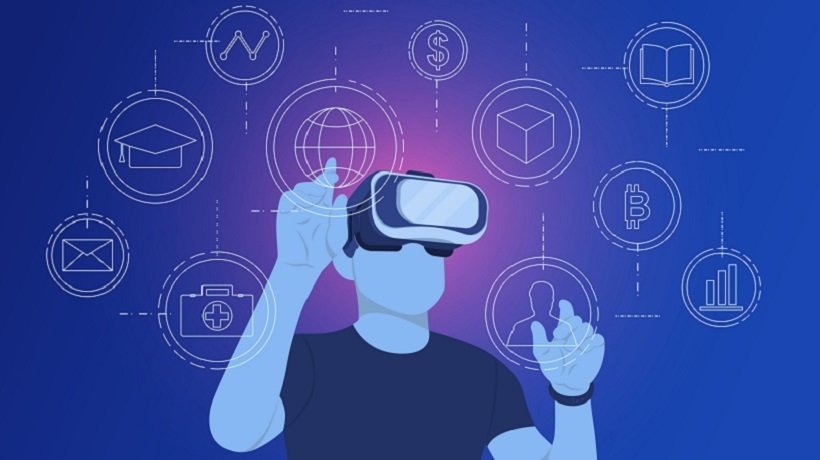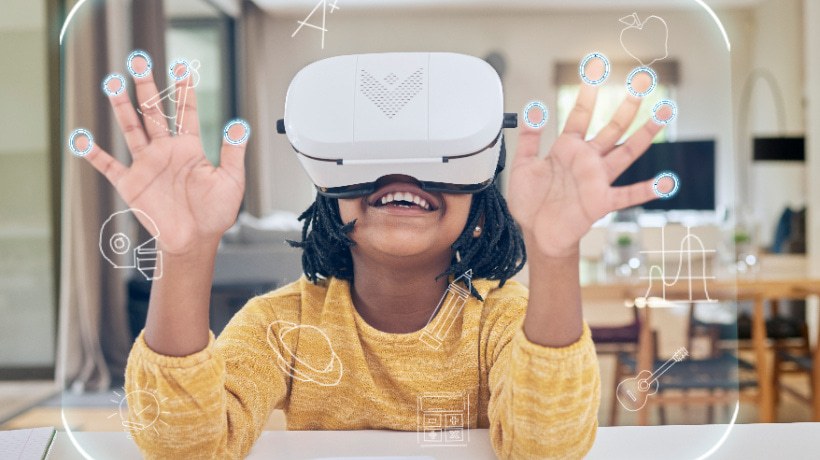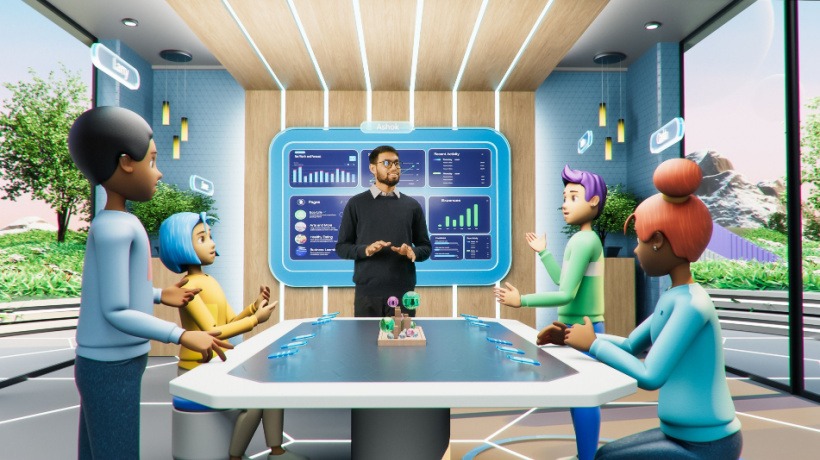Understanding The eLearning Industry
The metaverse is a virtual world where people can interact with each other and computer-made environments in a way that seems real and tangible. This new technology is likely to have a big effect on many fields, such as entertainment, business, and education. As of today, many businesses are looking for metaverse development services to become a part of this growing technology. In this article, we will focus on how the metaverse is changing the face of the eLearning industry.
What Is eLearning?
eLearning refers to using technology to deliver educational content and facilitate learning. With the rise of the internet, the eLearning industry has grown rapidly in recent years. People like online education because it is convenient and gives them more freedom than traditional classroom learning. While the eLearning industry has made great strides, it still faces several challenges, such as limited interactivity and a need for more personalization.
The Impact Of The Metaverse On The eLearning Industry
The metaverse has the potential to make eLearning much better by giving users more immersive, interactive, and customized ways to learn.
1. Increased Immersive Learning Experiences
The metaverse offers a more immersive learning experience compared to traditional eLearning methods. In the metaverse, people can go into a virtual world and interact with their surroundings and other people. This makes learning more fun and memorable. This immersive approach to learning can help users retain information and increase their understanding of the material.
2. Improved Accessibility And Interactivity
The metaverse offers increased accessibility and interactivity compared to traditional eLearning methods. With the metaverse, users can access their virtual learning environment from anywhere with an internet connection, and have discussions and work together in real time. This can make it easier for people with disabilities or who live in remote areas to get an education and learn.
3. Enhanced Collaboration And Networking Opportunities
The metaverse offers enhanced collaboration and networking opportunities for eLearning. In the metaverse, users can work together on projects, participate in virtual events, and connect with others in their field of study. This can help students feel like they are part of a group and give them the chance to meet new people and work with others, making the eLearning classroom a more interesting place to learn.
4. Personalized And Customizable Learning
The metaverse offers personalized and customizable learning experiences. In the metaverse, users can make their virtual environments and learning experiences fit their needs and preferences. This can provide a more engaging and effective learning experience than traditional eLearning methods. With the metaverse, users can create a learning environment that suits their learning styles and preferences.
Use Cases For The Metaverse In eLearning
The metaverse offers several potential use cases for the eLearning industry, including virtual classrooms, gamified learning, Virtual Reality training, and virtual career fairs and networking events. You can get more details with a metaverse consulting service from a reliable company.
1. Virtual Classrooms
In virtual classrooms in the metaverse, learning is more hands-on and immersive than in traditional online classrooms. Users can attend virtual lectures, take part in real-time discussions, and interact with their surroundings and other users in virtual classrooms. This creates a more dynamic and engaging learning experience.
2. Gamified Learning
The metaverse offers opportunities for gamified learning; users can engage in interactive and immersive educational games. This approach to education can make the educational experience more enjoyable and engaging, while still delivering valuable information and knowledge.
3. Virtual Reality Training
The metaverse offers Virtual Reality training experiences, where users can participate in simulations of real-world scenarios and practice skills in a safe and controlled virtual environment. This type of training can be especially valuable in healthcare, aviation, and law enforcement industries, where hands-on experience is crucial.
4. Virtual Career Fairs And Networking Events
The metaverse offers students and professionals the opportunity to connect with potential employers and other industry experts in a virtual environment. This can be especially valuable for individuals in remote or underserved areas, who may not have access to these events in person.
Challenges And Opportunities
While the metaverse offers many exciting opportunities for the eLearning industry, some challenges must be addressed.
1. Technical Challenges
One of the biggest challenges facing the metaverse is the technical infrastructure required to support the virtual world. This infrastructure must handle high levels of data transfer, support real-time interactions, and provide a stable and secure environment.
2. Costs
Another challenge facing the metaverse is the cost of entry. While the potential benefits of the metaverse are significant, the initial investment required to build and maintain a virtual world can be substantial. This can make it difficult for smaller eLearning companies to enter the market and compete with larger, well-established players.
3. Regulatory Challenges
There are also problems with privacy, data protection, and intellectual property rights that come with the metaverse. These problems need to be fixed so that the metaverse can be used for education in a safe and responsible way.
Conclusion
The metaverse offers a promising future for the eLearning industry, with the potential to provide more immersive, interactive, and personalized learning experiences. While technical, cost, and regulatory challenges need to be addressed, the benefits of the metaverse for the eLearning industry are significant, and the future looks bright. As technology changes, it's likely that the metaverse will become an even more important way to teach and learn.









